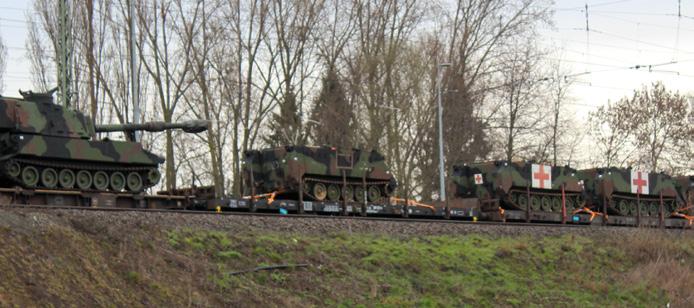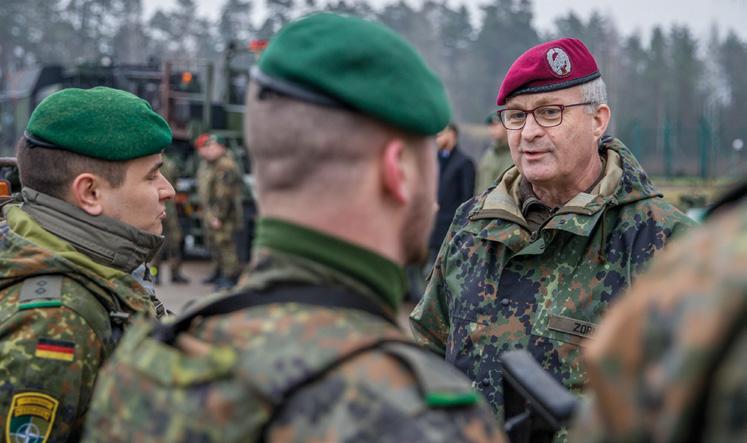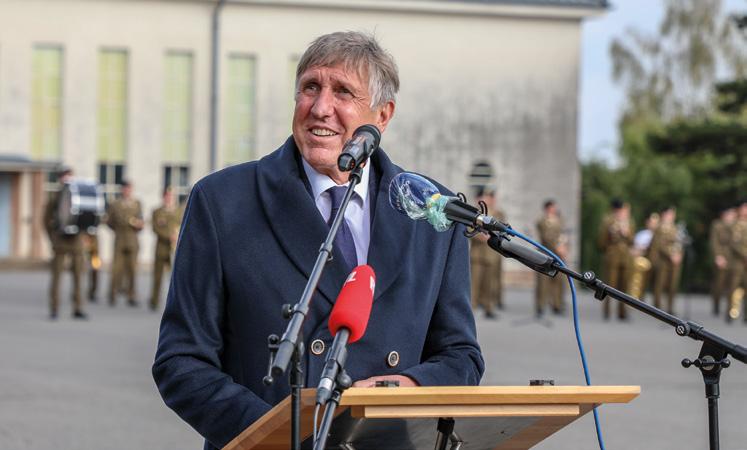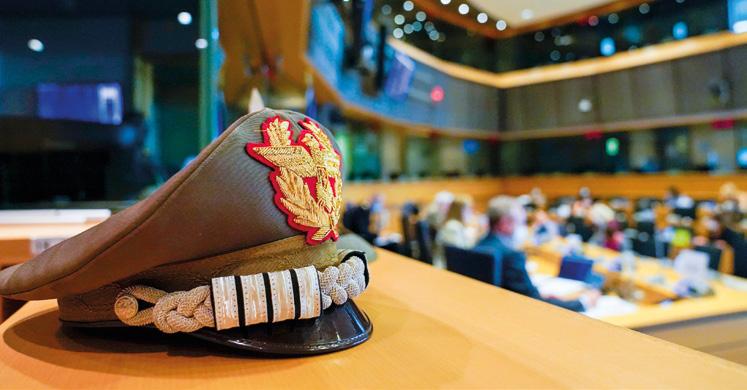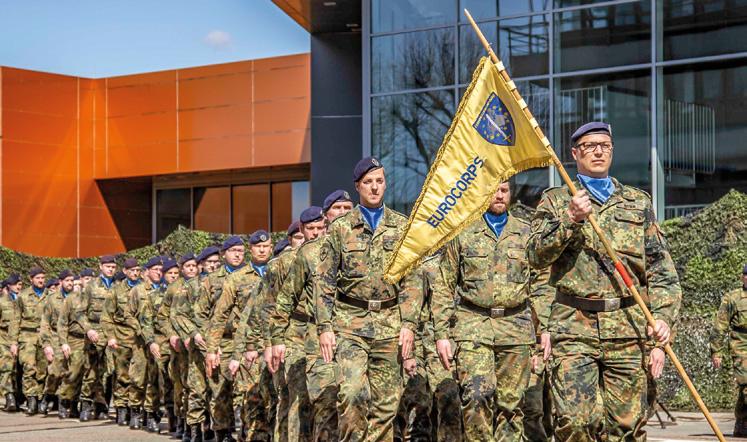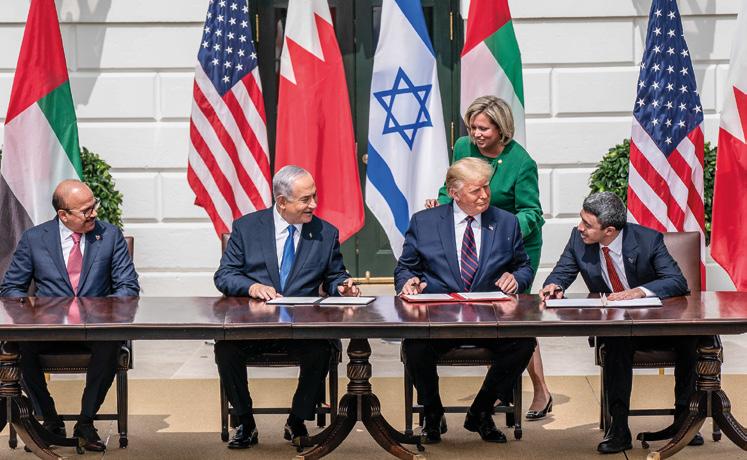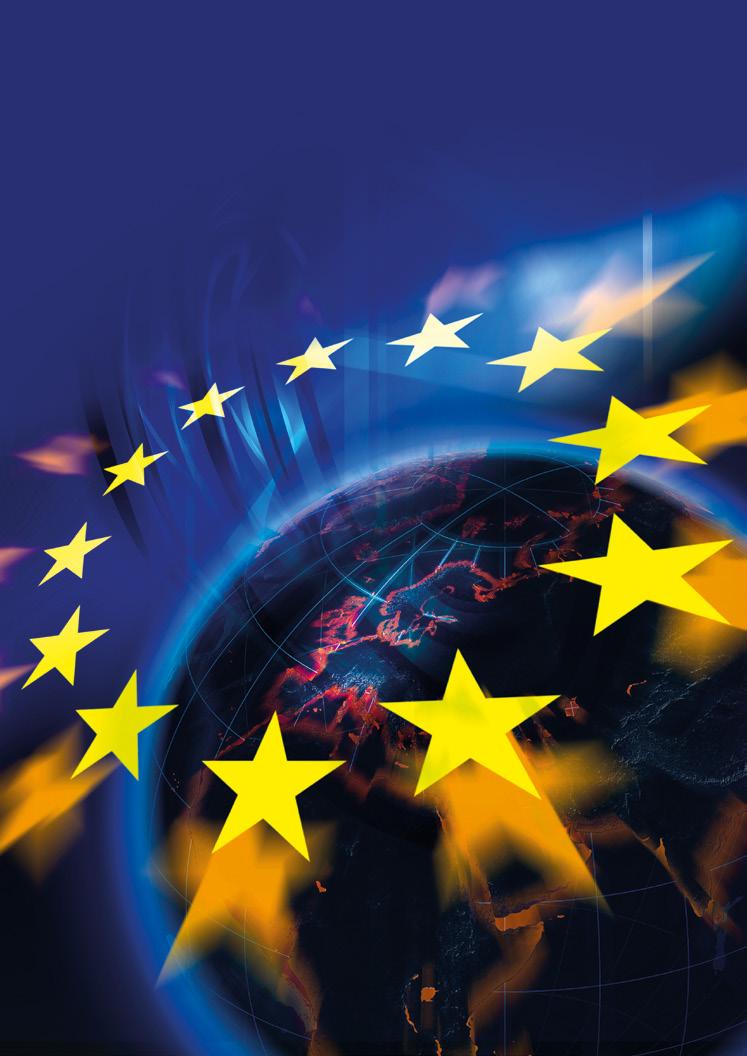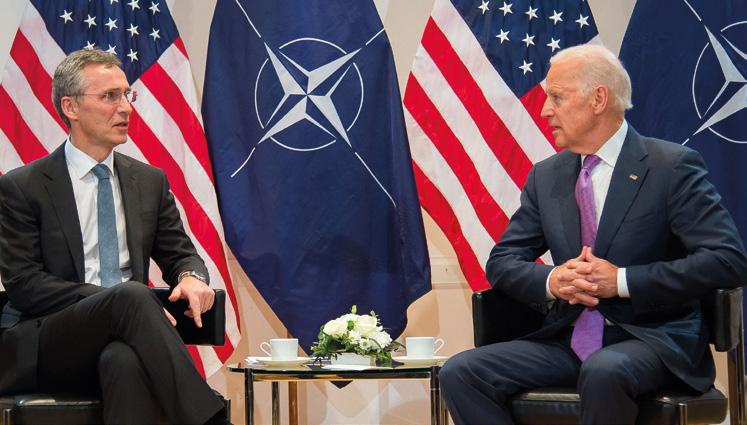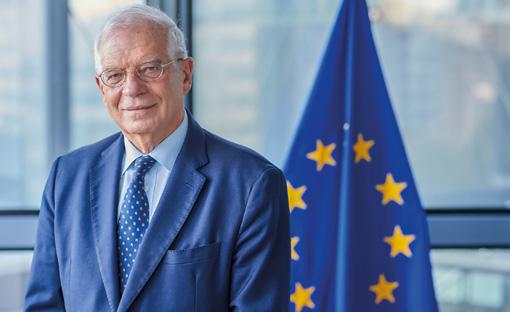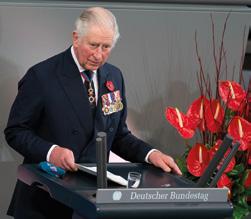THE EUROPEAN – SECURITY AND DEFENCE UNION
The word “defence” is no longer taboo in Brussels
by Patrick Bellouard, President of EuroDéfense-France, Paris
S
ince the beginning of 2020, Covid-19 and its economic and social impacts have revealed the vulnerability and dependencies of Europe in the health sector and more globally in the economic domain and value chains. There is a feeling of global uncertainty. The battle to halt the pandemic is a reminder of the importance of European strategic autonomy, one of the features of the EU’s June 2016 Global Strategy for Foreign and Security Policy. It has highlighted the need to extend this autonomy to areas such as health and the numerous economic sectors where globalisation and unbridled competition have exposed the EU and its Member States to a degree of dependency not only unacceptable but fraught with long-term risk.
A wake-up call to pull together At the start of the pandemic, Member States reacted in isolation, giving the impression that it was every man for himself. The European Commission, while it may have no specific responsibilities for health issues, was slow to play its coordinating role and propose consistent action. But with the Commission’s support, Member States finally began to pull together, although the road towards solidarity and cohesion was bumpy, to say the least. However, to emerge from the crisis created by the pandemic, Member States now need to take matters further and demonstrate solidarity on all fronts. The Franco-German European recovery initiative of 18th May
Photo: European Union, 2020/Alexandros Michailidis
The impact of Covid-19 on European defence
set the scene for further developments and the Commission reacted swiftly by unveiling plans on 27th May for a massive reboost of Europe’s economies. In July, the European Council agreed on a plan based on these proposals in addition to the draft 2021-2027 budget under discussion with the EU Parliament. This plan will represent major progress: for the first time, it will allow the Commission to borrow funds to inject into the European budget to top up contributions from Member States and its own funds and pave the way for EU-specific public borrowing. Although Hungary and Poland, who do not fully agree with the funds allocation conditions, have delayed the budget approval process, the European Council has reached a consensus on 10th December. Then the 2021-2027 budget package should be approved on time by the Council and the Parliament. One thing is certain: the EU cannot afford to fail in this venture, since a failure would threaten its future and that of the Member States. In her speech on the state of the Union early this year, the President of the Commission invited the Member States to
“To emerge from the crisis created by the pandemic, Member States now need to take matters further and demonstrate solidarity on all fronts.
40
”
shape the changes to protect European citizens. But she never mentioned the field of defence. It is obvious that it was not prioritised in the compromise approved by the European Council for the 2021-2027 budget. The Europen Defence Fund (EDF)


